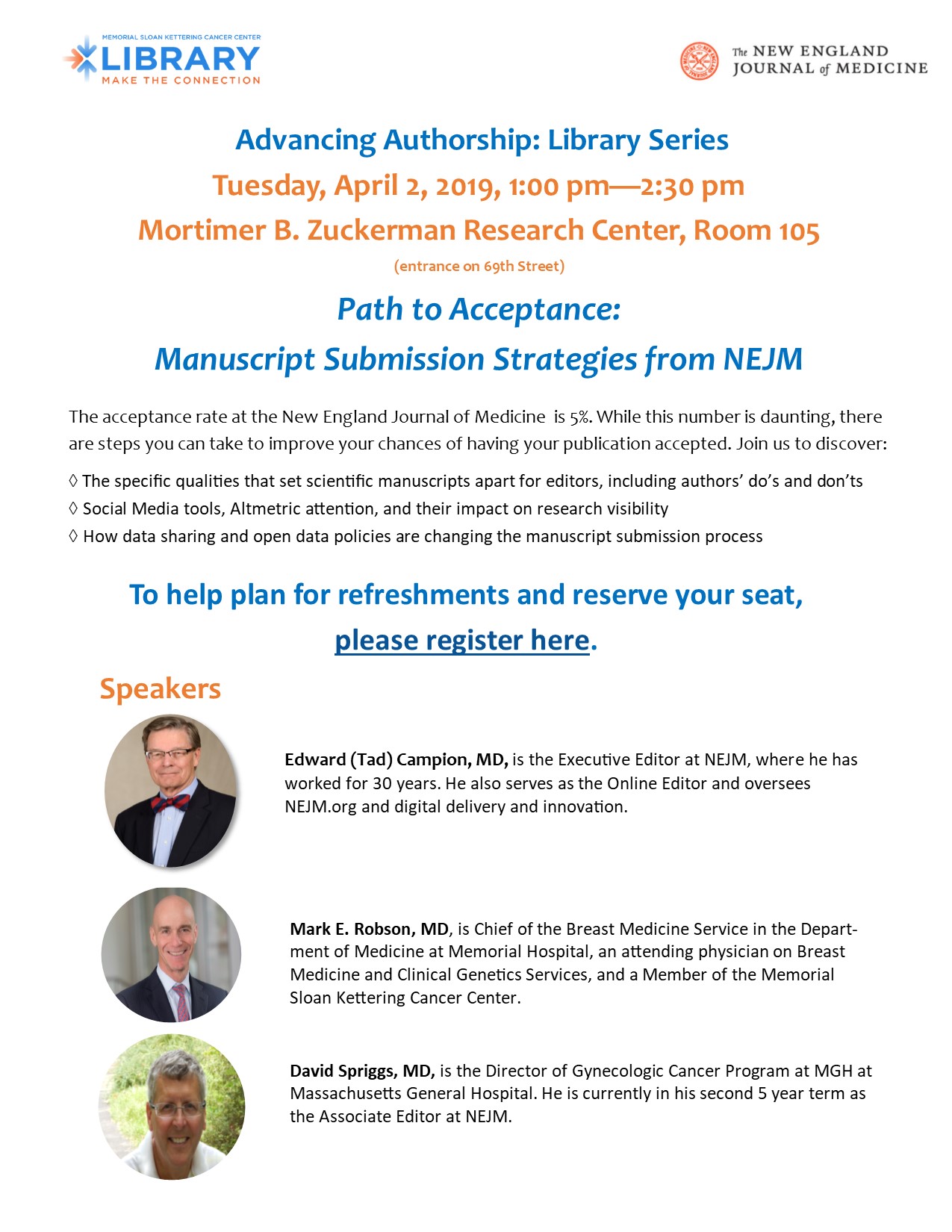The MSK Library’s May/June workshop schedule is now available! Be sure to read the descriptions below of our newest training class offerings before registering for a session.
Please note that if the scheduled class times do not fit your calendar, you’re welcome to request an individual session (either in person or via WebEx) at a date/time that works best for you.
1) Finding Evidence Fast
Course Description: Need answers on the go? This class will show you where to go to find the best evidence in easy to read formats for quickly answering clinical questions.
Learning Objectives – Learners will be able to:
- Understand the levels of evidence
- Differentiate between background and foreground questions
- Identify mobile point of care tools
- Learn where to find answers to clinical questions
2) EndNote for Systematic Reviews
Course Description: Learn how to leverage the features/functionality of EndNote to streamline key citation management steps in your Systematic Review process.
Learning Objectives – Learners will be able to:
- Use Groups to organize your citations (e.g., by source database searched for proper documentation, by reference/publication type, etc.) or to track items ordered via inter-library loan to minimize duplication of effort, etc.
- Remove duplicates more efficiently by adjusting sensitivity, by rearranging the fields displayed to allow for easy record prioritization, etc.
- Streamline obtaining full-text PDFs by using Find Full-Text via EndNote, by using the EndNote records to launch ILLiad request submissions, etc.
- Export citation data in appropriate formats for importing into other tools that will be used for the subsequent (title/abstract/full-text) review steps (e.g., Excel, Covidence, DistillerSR, etc.).
- Save compressed EndNote libraries to archive/document SR stages that will be needed for the development of the PRISMA flow chart.
3) ORCID: Open Research and Contributor ID
Course Description: As more and more publishers require that authors include an ORCID iD during the publication submission process, you might be wondering – what is ORCID, anyway? In this class, attendees will learn ORCID basics (what it is and how it works) and why an ORCID ID is an important tool for all authors who want to distinguish their work from others, maximize their research impact, and maintain compliance with publishers and granting agencies. Attendees will also learn about the connection between ORCID iD and Synapse, MSK’s publications and author profile system.
Learning Objectives – Learners will be able to:
- Define what ORCID iD is and describe why it exists
- Identify how author name disambiguation impacts researchers
- Understand how to sign up for an ORCID iD and the benefits of the ORCID@MSK service
- Understand how MSK’s publications and author profile system (Synapse) can be leveraged to populate ORCID profiles
4) Evaluating Journal Quality
Course Description: Come to this workshop to find out about the library and information resources that can help you to more comprehensively evaluate a journal’s “quality”. A variety of criteria that should be considered when deciding on where to submit a research manuscript for publication will be discussed.
Learning Objectives – To learn how to evaluate a journal by considering such criteria as:
- Indexing & abstracting services
- Journal metrics, publisher workflow stats
- Unique Identifiers (DOI, ORCID, etc)
- Other journal policies & requirements (protocol registration, reporting standards, etc)
- Peer-review status/system, credit
- Open Access vs. traditional publishing models
- Copyright & permissions for re-use
- Digital archiving for posterity
Questions? Just Ask Us!
